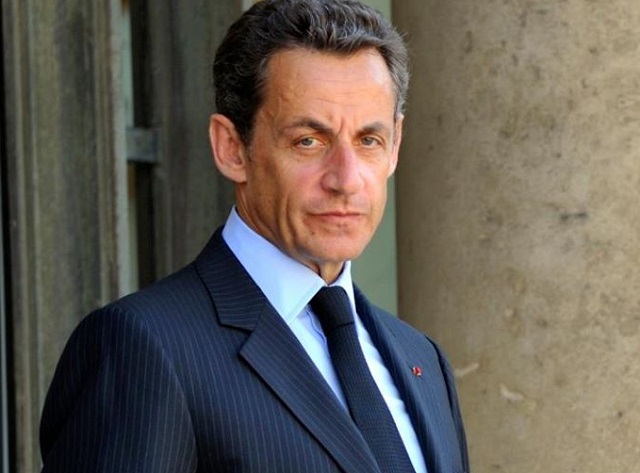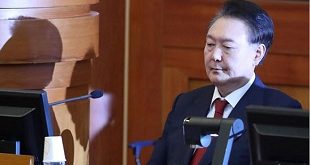
Paris, France | AFP | A French appeals court ruled Thursday that former president Nicolas Sarkozy should answer charges of illicit financing of his failed 2012 election campaign, the latest in a string of legal proceedings likely to see him face trial.
Sarkozy, 63, will appeal the decision before France’s court of final appeal, his lawyers said.
It is one of several legal inquiries which have dogged the rightwing politician since he left office in 2012.
In upholding last year’s decision by a judge to put Sarkozy on trial, the appeals court in Paris rejected arguments from his legal team seeking to avoid the potentially embarrassing public ordeal of a trial. If convicted, he could face up to a year in prison if found guilty.
Prosecutors claim Sarkozy spent nearly 43 million euros ($51 million) on his lavish re-election bid — almost double the legal limit of 22.5 million euros — using fake invoices.
Sarkozy has angrily denounced the charges, saying he was unaware of the fraud by executives at public relations firm Bygmalion, who are also amongst a total of 13 people likely to face trial.
Others caught up in the case include accountants and former officials of the conservative UMP party.
Sarkozy’s defence team had also argued that France’s Constitutional Council had already sanctioned the ex-president for campaign overspending in 2013.
But that ruling concerned just 364,000 euros of overspending, and came before revelations of the “Bygmalion affair” and fake billings.
Bygmalion executives and Jerome Lavrilleux, the deputy manager of Sarkozy’s 2012 campaign, have acknowledged the existence of fraud and false accounting.
– ‘Restore my honour’ –
Sarkozy, who was president from 2007 until his defeat by Socialist rival Francois Hollande in 2012, would be the second former French president to be tried for corruption in recent history.
His conservative predecessor Jacques Chirac was given a two-year suspended sentence in 2011 for embezzlement and misuse of public funds during his time as mayor of Paris.
Sarkozy has been fighting legal problems on several fronts.
He faces criminal charges for corruption and influence peddling for allegedly offering to help a judge obtain a plum retirement job in return for secret information about another case.
That inquiry, which could also lead to a trial, gave him the dubious distinction in 2014 of being the first former French president to be taken into police custody.
He has also been charged over accusations by former members of Moamer Kadhafi’s regime that he accepted millions of the slain Libyan dictator’s cash for his first presidential campaign in 2007 — claims Sarkozy has vehemently denied.
Other cases, still under investigation, relate to when he was president, but he is less likely to be directly implicated as he can plead presidential immunity.
One case involves opinion polls sold at over-priced rates to presidential aides; the second to an arbitration case linked to the sale of the Adidas shoe company, which saw tycoon Bernard Tapie win a large award from the Credit Lyonnais bank.
Sarkozy, who was summoned to appear before a court as a witness, refused citing his presidential immunity.
Sarkozy attempted a political comeback last year, taking the helm of his former party — now renamed the Republicans — in a bid to win the nomination to run as its presidential candidate.
But he lost out to his former prime minister Francois Fillon who went on to suffer defeat at the hands of Emmanuel Macron.
In March, Sarkozy said he was “finished” with politics after being grilled by investigators for two days over the Kadhafi charges, though he has vowed to clear his name and “restore my honour”.
 The Independent Uganda: You get the Truth we Pay the Price
The Independent Uganda: You get the Truth we Pay the Price



